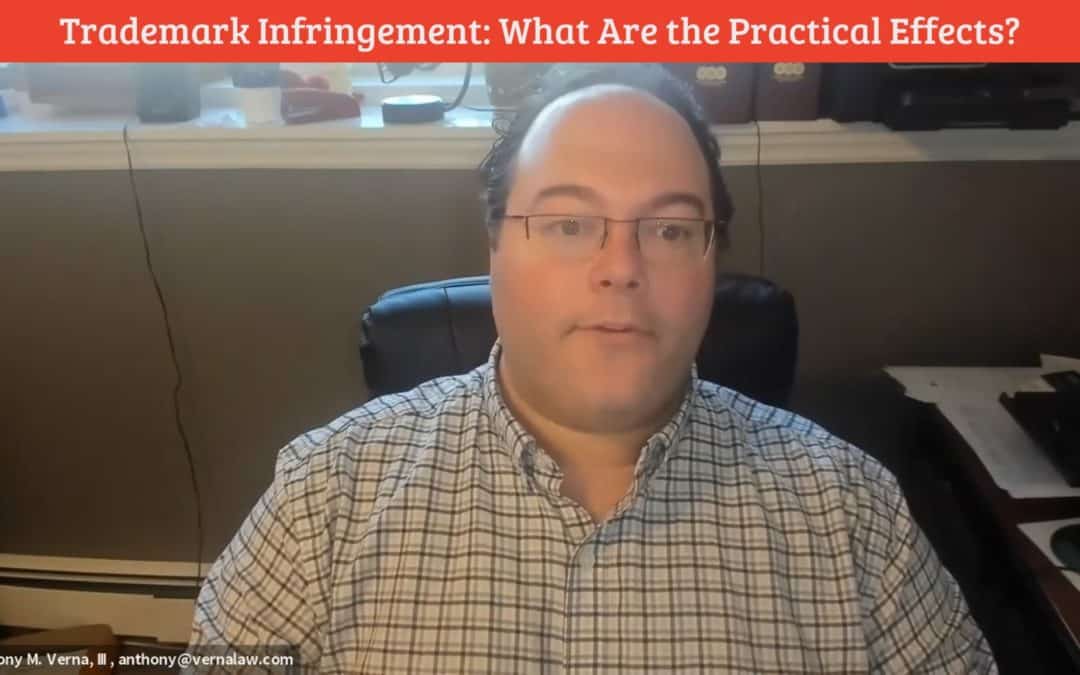Podcast (video): Play in new window | Download
Some statistics for 2019 are coming in in the trademark world. And in these particular statistics, one survey from CompuMark, a company from Clarivate Analytics and a company that does all of the Verna Law trademark searching, we’re finding that for trademark infringement, main consequences were:
- customer confusion at 45% of respondents
- a loss of revenue due to trademark infringement for 38% of respondents to the survey and
- damage to brand reputation, which was 37% of respondents to the survey.
Three quarters of trademark infringements also led to litigation, which doesn’t really surprise me as litigation tends to keep climbing up every year. 40% of organizations have stated they spent between $50,000 to $249,000 on legal proceedings for trademark infringement.
46% of respondents said that a rebrand was a result of the
infringement proceeding. Again, that doesn’t really surprise me as defendants
do tend to need to rebrand because, of course, they’re the ones who are allegedly
infringing.
With brands filing infringement matters, what does this tell us?
One, the registration of a trademark is very important. Recently we had a settlement where the settlement probably was not as good as we would’ve hoped for our client because the trademark registration was not in effect at the time of infringement. So that registration really does matter.
Two, planning matters as well. If you’re a smaller
business, understand that you’re going to be playing the same game as all of
the big businesses when it comes to trademark infringement. So if you’re going
to register, you need to plan for what’s going to happen if your mark is
infringed, how you’re going to budget, and how you’re going to deal with the
infringement. Sending a cease and desist letter in today’s world generally
doesn’t get the same results as it used to. You’re generally going to have to
go to court and you’re generally going to have to deal with high costs because
right off the bat, most defense defendants today send file a motion to dismiss
as a de rigeur part of their defense.
So make sure that you’re clear as a trademark owner what your costs are going
to be in understanding this. Also if you’re going to be creating any new
brands, do your due diligence because doing your due diligence means that you
can understand what brands are out there, what registered trademarks are out
there, so that you can kind of fit your mark in this big virtual space that we
have called trademark registrations.
If your mark could infringe on somebody else’s mark, maybe he should nip that in the bud from the very beginning rather than being a defendant in a trademark infringement suit.
Three, when you’re dealing with the budget, make sure you understand how your business can rebrand if you need to. That pivot is always going to be important. You always have to plan for every single situation when you’re dealing with intellectual property.
I’m Anthony Verna, managing partner of Verna Law, P.C, but chances are you already knew that. That’s why you clicked on this video. Thank you for watching. See you soon.


Trackbacks/Pingbacks